Health
Best Quercetin Supplements (Top 10 ACTIVE Supplements Reviewed)
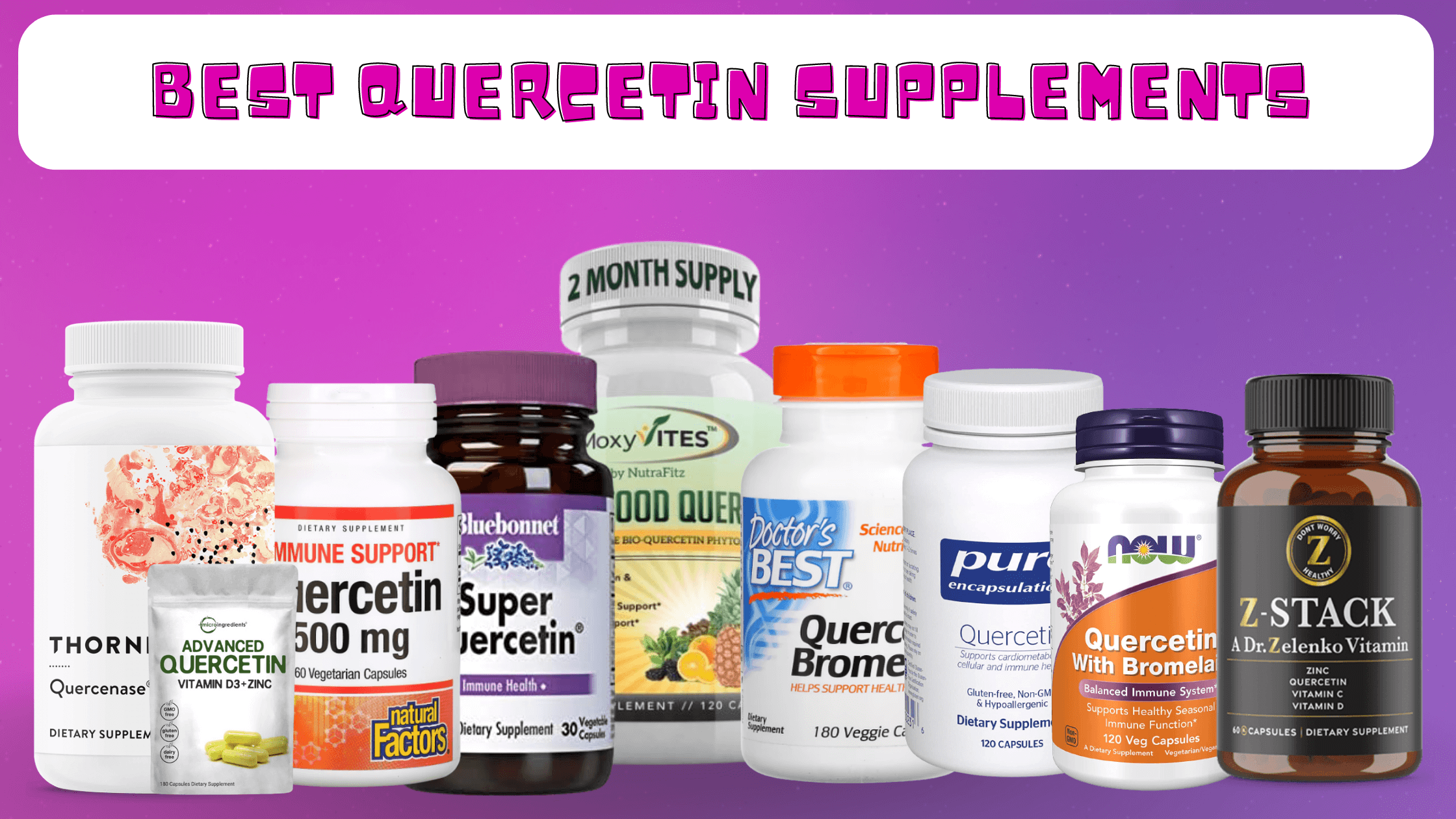
Best Quercetin Supplements (2022): Quercetin is a flavonoid in various foods, including apples, onions, and tea. In addition to providing antioxidant benefits, quercetin has been shown to have anti-inflammatory properties.
Quercetin supplements have become quite popular over the past few years. One study showed that more than 60% of Americans take supplements containing quercetin regularly.
10 Best Quercetin Supplements In 2022 – How Effective Is Quercetin In Improving Overall Health?
It’s important to note that not all quercetin supplements are created equal. Some are more effective than others at improving your health, while others may not be as effective or even harmful if you’re taking too much of them.
This article will help you determine which is the best quercetin supplement for you based on your health goals and needs.
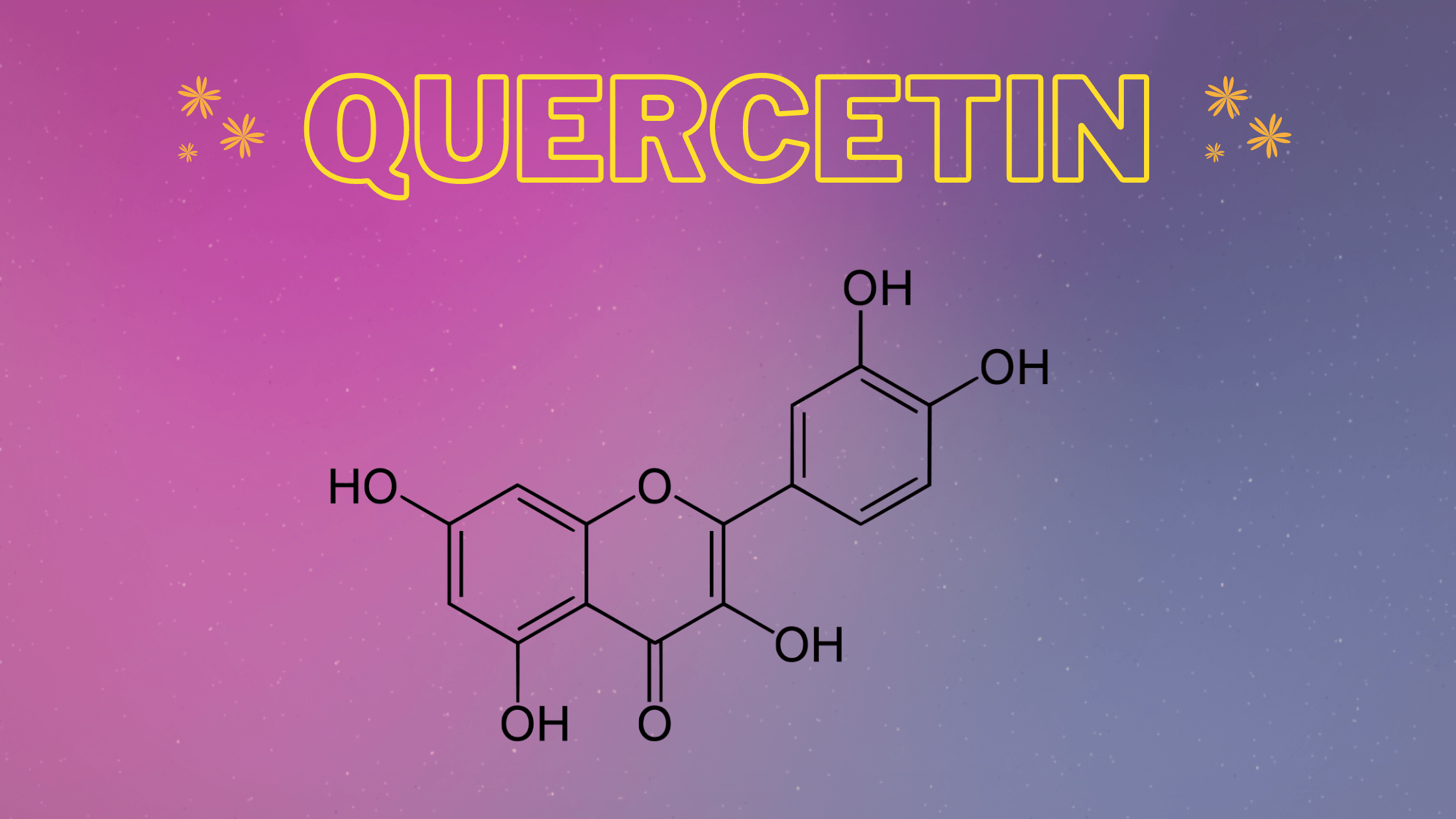
What is Quercetin?
Quercetin is a flavonoid that occurs naturally in a wide variety of food sources. It’s also found in tea, wine, and other fermented foods.
Quercetin may help prevent cancer and heart disease by blocking the formation of advanced glycation end-products (AGEs), which are a major contributor to inflammation and damaging the body. Quercetin also has anti-inflammatory properties that reduce skin problems like psoriasis, eczema, hives, or acne.
Quercetin is an antioxidant that can help protect your cells from free radical damage in the body. This makes it useful for people with chronic diseases like diabetes or cancer because it can help prevent oxidative stress from occurring within cells.
How beneficial is Quercetin?
Quercetin may help with:
- Heart health
Quercetin can reduce blood pressure and cholesterol levels in people with high blood pressure. Research shows that quercetin may also lower the risk of heart attack by lowering levels of the inflammatory protein IL-1beta in the body.
- Cancer prevention
Quercetin has been found to prevent tumors from forming in laboratory animals when they are exposed to carcinogens like tobacco smoke or chemicals in food. It also appears to reduce inflammation that plays a role in cancer development by blocking some pathways involved in tumor growth and promotion.
- Diabetes management
Quercetin may help control diabetes because it increases insulin sensitivity and reduces fat storage around the middle section of your body (known as visceral fat). This can help prevent type 2 diabetes symptoms such as fatigue, weight gain, and muscle weakness because your body doesn’t use insulin properly or produce enough.
- Anti-inflammatory benefits
Quercetin has been shown to help relieve pain and inflammation by boosting an enzyme called nitric oxide (NO). It helps blood vessels relax, which reduces pain and swelling caused by inflammation.
- Antibacterial properties
Quercetin has been shown to kill bacteria that cause tooth decay by destroying their cell walls using antioxidants known as quinones or catechins.
In addition, quercetin also helps kill oral candida yeast strains that cause cavities and gum disease by destroying their cell walls using antioxidants known as catechins or phenols. Quercetin has also been shown to stop the growth of oral bacteria that cause tooth decay by preventing them from sticking together.
What are the best Quercetin supplements?
The best supplements are:
1. Thorne Research Quercenase
Combining quercetin phytosome with bromelain, quercenase has been developed. The limited bioavailability of quercetin was the impetus for creating the novel quercetin phytosome formulation based on food-grade lecithin. Phospholipids (phosphatidylcholine) are essential building blocks of every cell membrane, and phytosome complexes are made by binding a botanical extract to one.
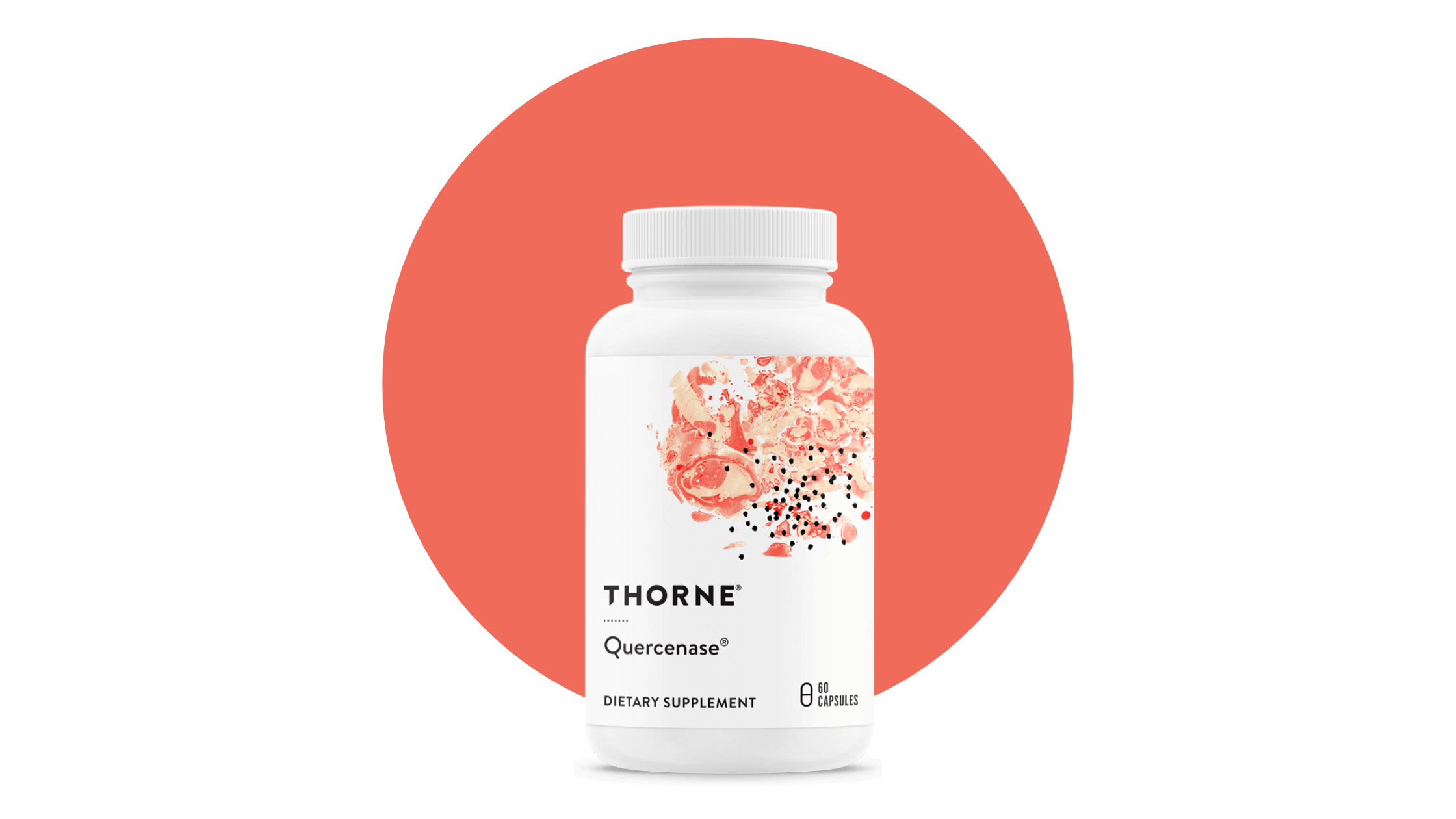
2. MoxyVites Quercetin 500mg
The quercetin phytosome and bromelain in Moxyvites make up the quercetin complex. Poor solubility and limited oral absorption characterize regular quercetin. Standardized extracts made using Moxyvites’ technology have their absorption and bioavailability multiplied by 20 thanks to the binding of quercetin with a glucose bond and the integration of phospholipids. By reacting with phospholipids, phytoconstituents in their complicated delivery system enhance bioavailability.
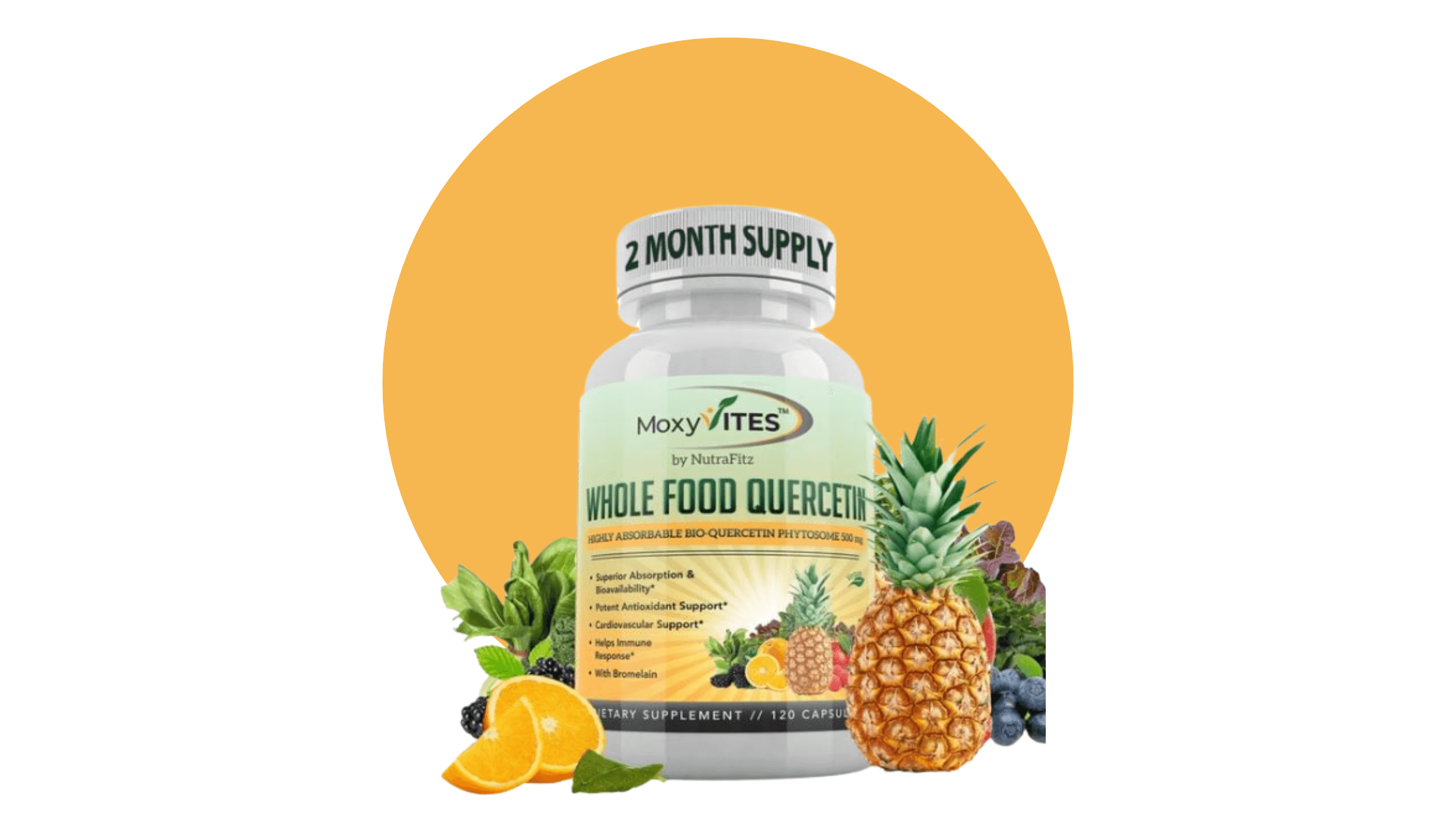
3. Z-Stack Quercetin 500 mg
Dr. Zelenko has created an oral supplement comprising zinc, vitamin C, and vitamin D3 in addition to the zinc ionophore quercetin. Z-Stack Supplement is what we’re calling it.
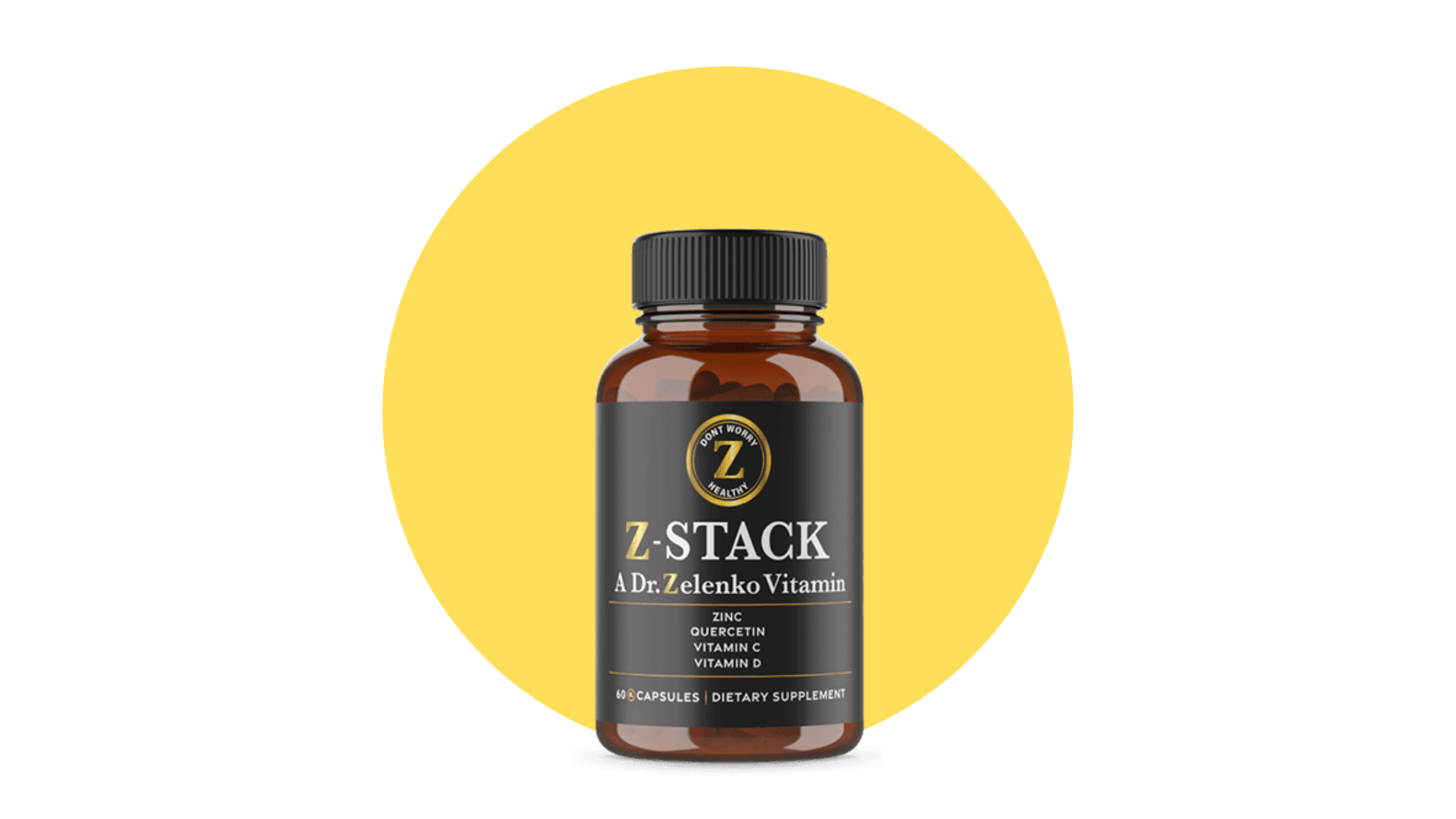
4. NOW Supplements
These quercetin pills from NOW Foods are worth considering if you’re trying to find a supplement to help with inflammation or oxidative stress. 800 milligrams of quercetin and 165 milligrams of bromelain (to aid absorption) are included in each of the two capsules in a serving.
NOW Foods is a label that has been committed to quality since its inception. They guarantee their supplements for 30 days and only use GMP-approved facilities to make them.
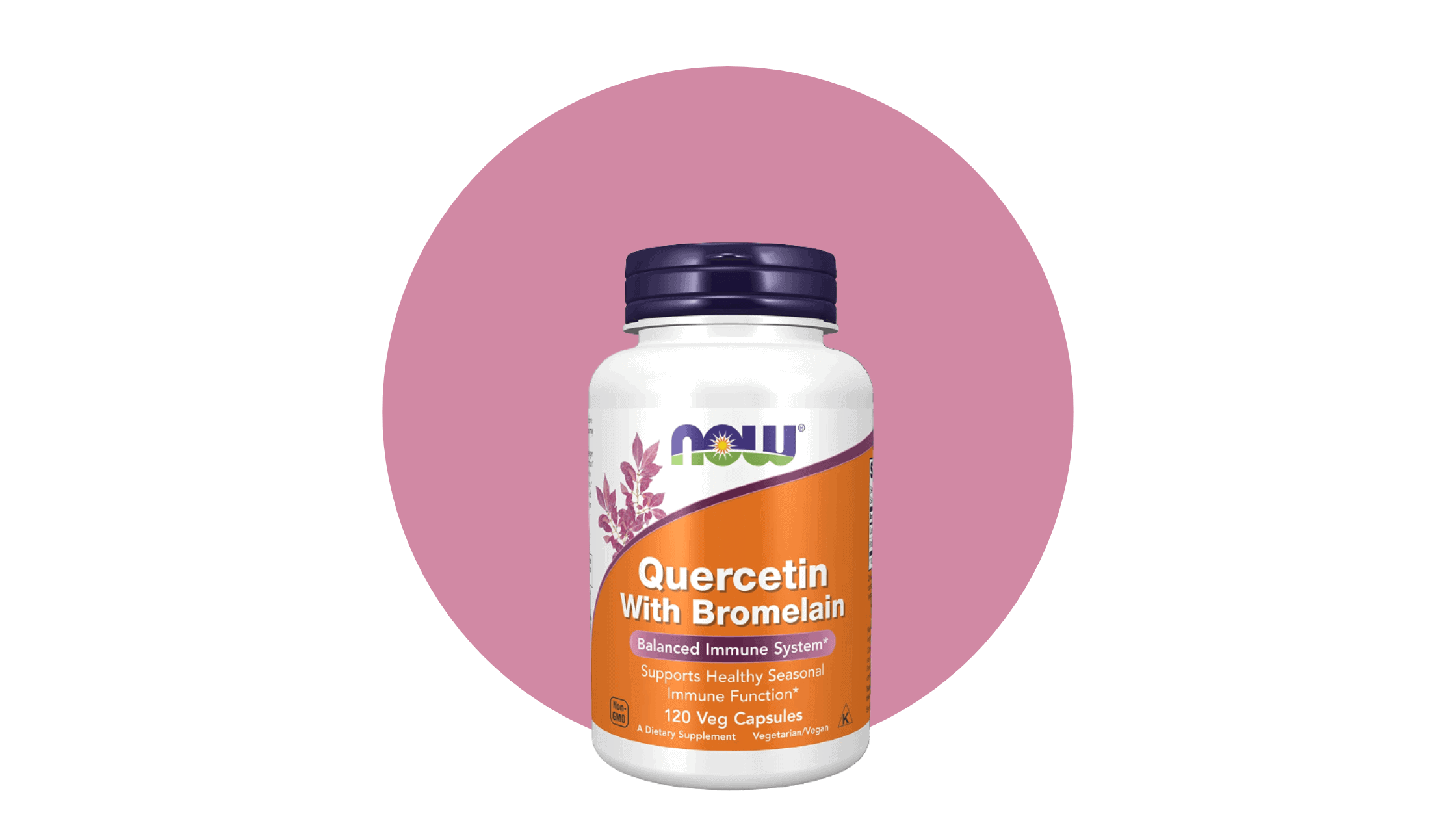
5. Natural Factors
In addition to its anti-inflammatory effects, quercetin has been demonstrated to protect against cardiovascular disease. However, you may be concerned about taking too much quercetin if you are also taking other drugs. The ideal dosage of this quercetin supplement is simple to get with this Bioactive Quercetin EMIQ.
Enzymatically modified isoquercitrin (EMIQ) is used to create these dietary aids. Using a naturally occurring enzyme mechanism, normal quercetin was converted into the more bioavailable alpha-glycosyl isoquercitrin. EMIQ has a peak blood level in only 15 minutes, and its absorption rate is 40 times that of regular quercetin.
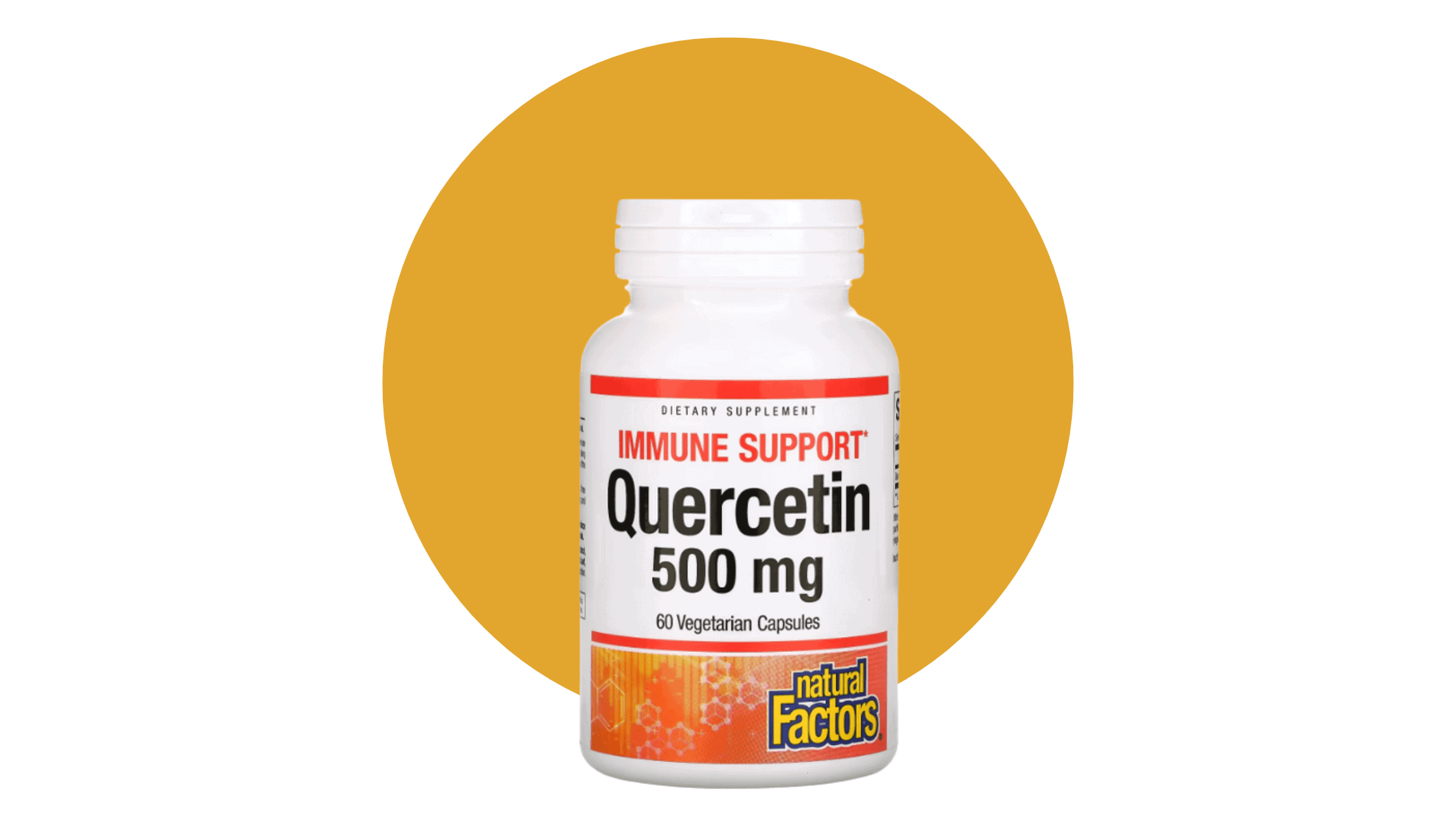
6. Doctor’s Best
This supplement from Doctor’s has been demonstrated to enhance immunological health, combat free radicals, and maintain healthy joints for less than $20 per bottle. Each meal contains 250 milligrams of bromelain and 500 milligrams of quercetin dihydrate for maximum bioavailability.
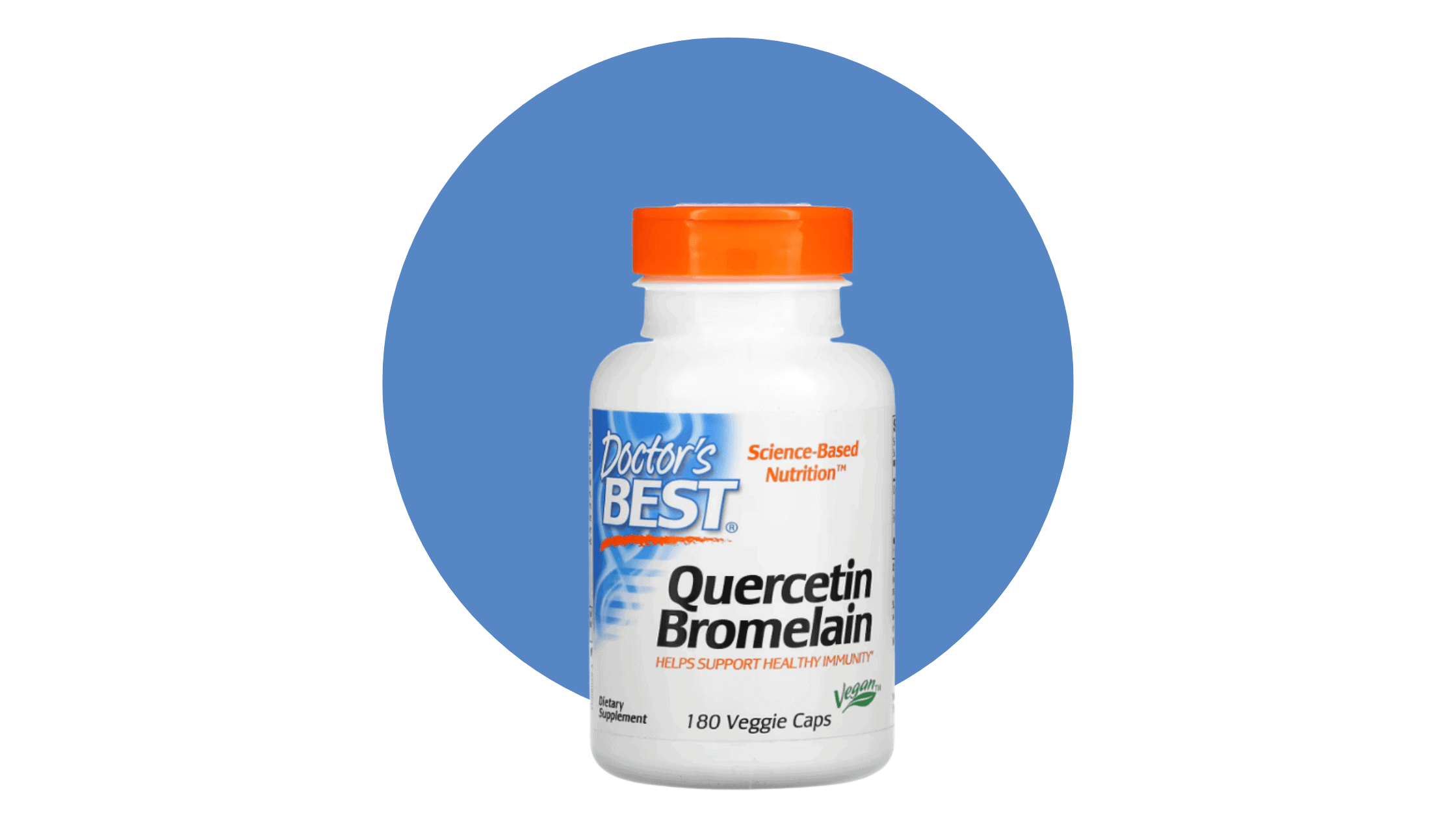
7. MicroIngredients
MicroIngredients stands out with a solution that does it all when it comes to maintaining a healthy immune system. One high-dose gram of quercetin, 5000 IU of vitamin D, of which most Americans don’t get enough, and 50mg of zinc are included in each serving of three capsules.
As immune-supporting vitamins go, this might be considered a good all-around option. MicroIngredients provides comprehensive lab findings on its website, going above and above the norm for required testing. It’s not liposomal, however, so that’s out.
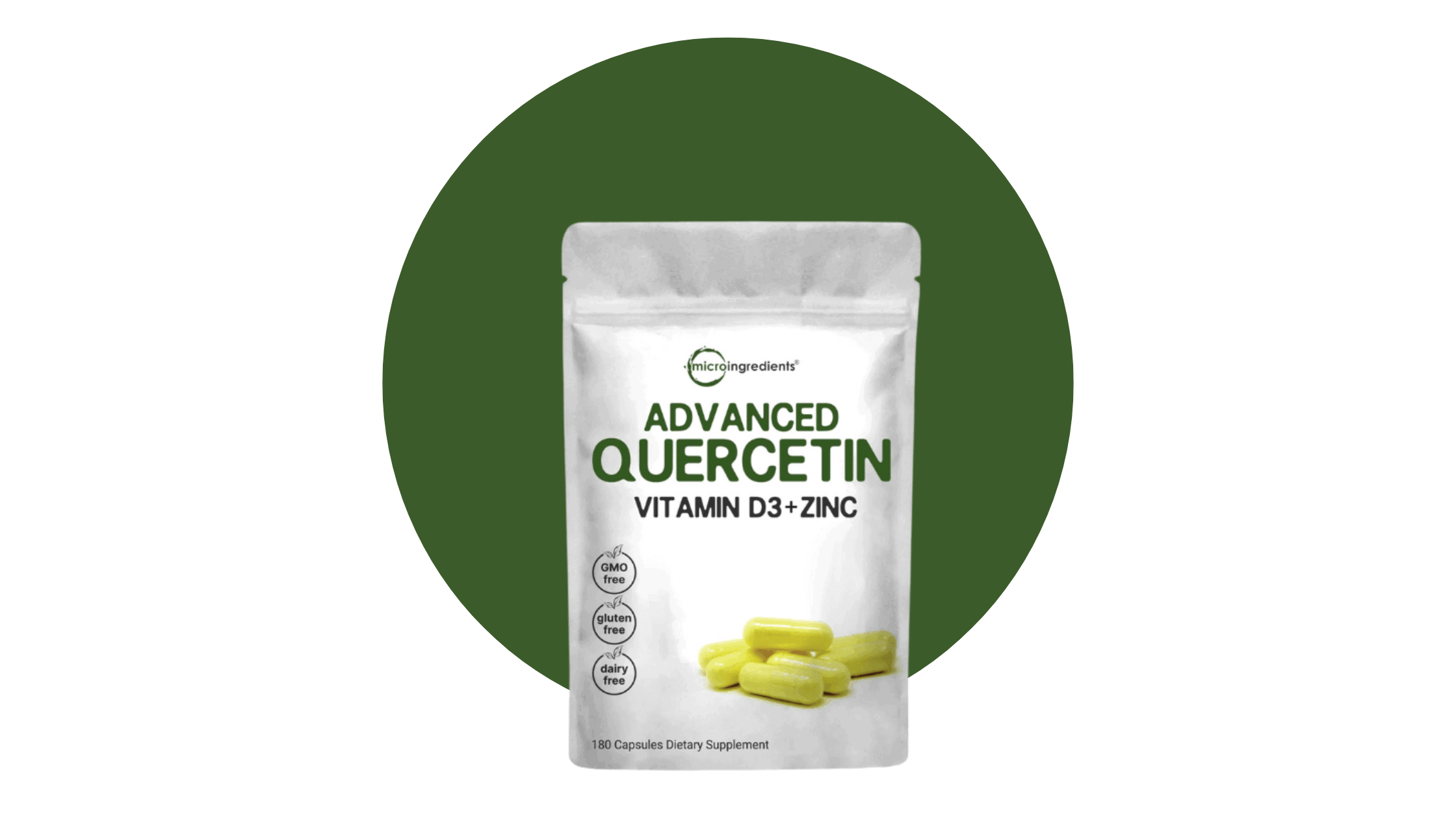
8. Bluebonnet
Super Quercetin from Bluebonnet Nutrition has 250mg of each capsule and includes bromelain, rose hips, a citrus bioflavonoid complex, and more. This quercetin supplement is a terrific value and provides additional benefits to the immune system.
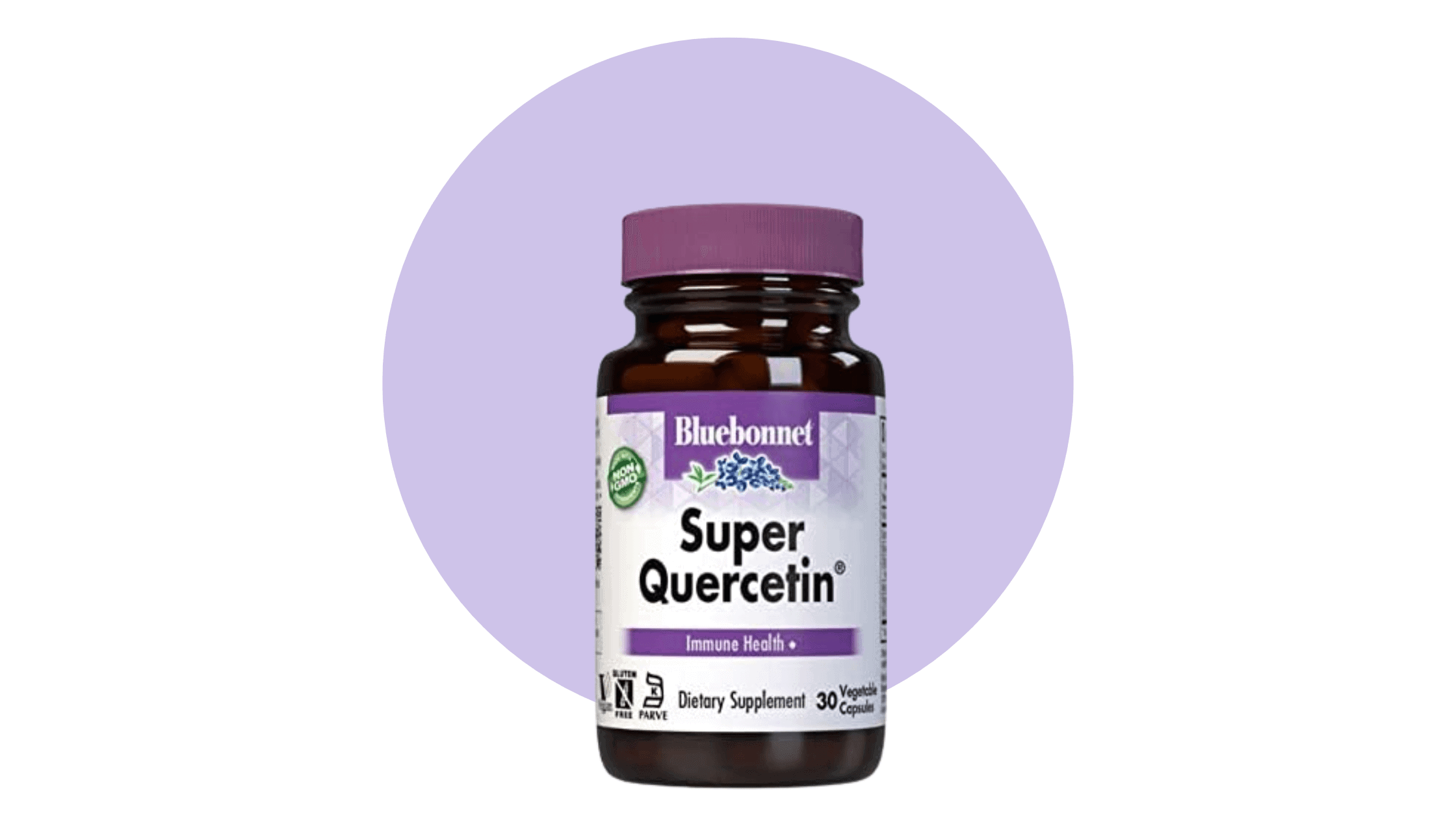
9. Pure quercetin
Pure quercetin isn’t just a name! There are no fillers, tree nuts, trans fat, hydrogenated oils, genetically modified organisms, or magnesium stearate in this product. It’s effective since it doesn’t have any gluten, dairy, or soy in it.
The hypoallergenic fiber in this product is American-made, and the quercetin in it is sourced from Brazil.
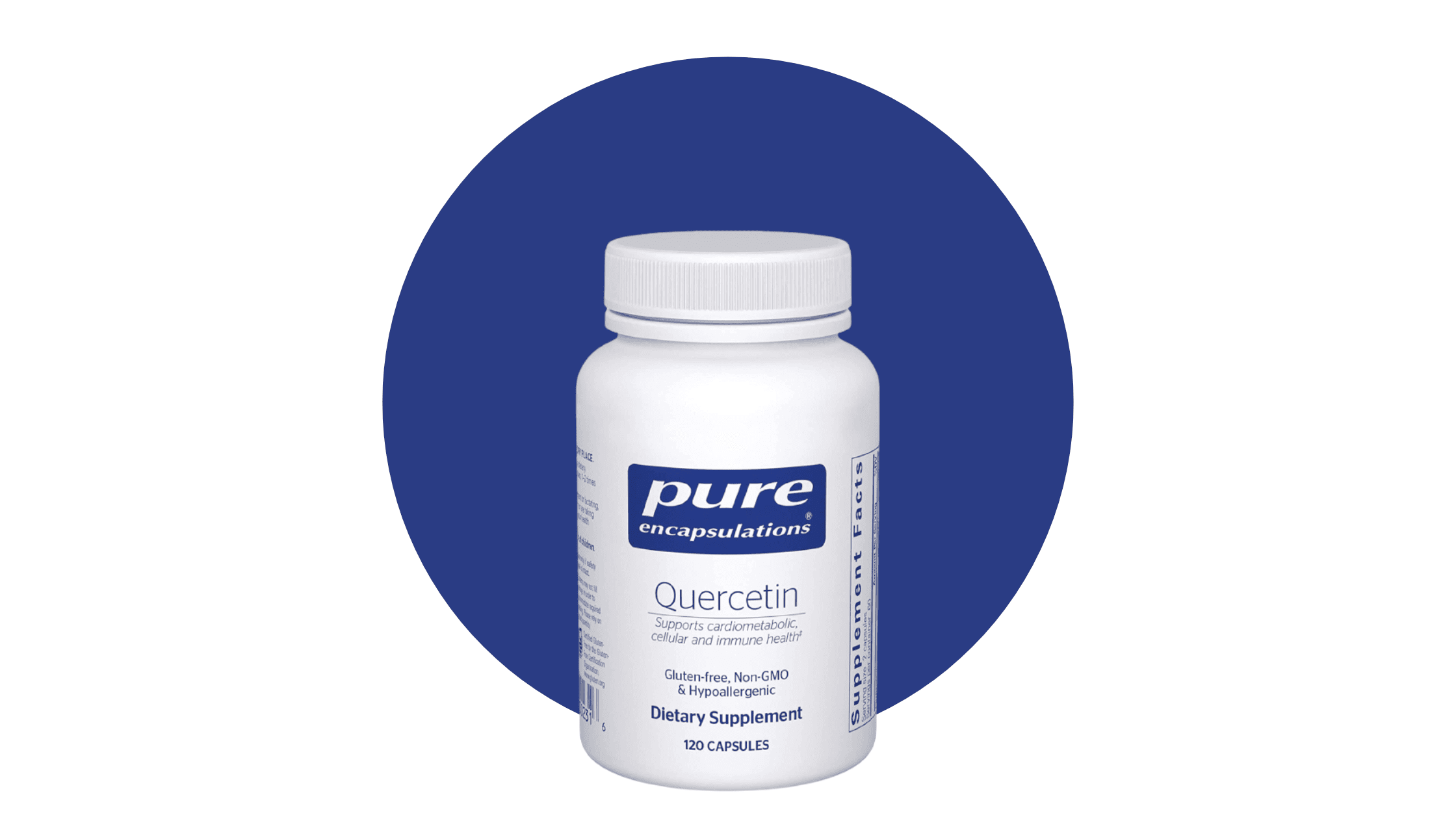
10. Hista-Aid
Quicksilver Scientific emphasizes the anti-allergy advantages of quercetin supplements as a primary selling point. In addition to quercetin, they also contain luteolin, diindolylmethane, and vitamin C, all of which may help with allergies and the immune system.
There is less quercetin per serving at 16mg (four sprays). However, as it is a liposomal substance, its bioavailability is increased.
The goods made by Quicksilver are guaranteed to be of the highest quality since they have been given the GMP seal of approval.
How much quercetin should I take?
The amount of quercetin you need depends on age, activity level, and health status. For example, if you are pregnant or breastfeeding, talk to your healthcare professional about how much quercetin is right for you.
The recommended daily dose of quercetin for adults is 500 mg daily, which is approximately 17 mg per kilogram of body weight (the amount of quercetin a person weighs). A person weighing 75 kilograms would need to take 600 mg daily.
If you’re taking prescription medications or have any pre-existing medical conditions, talk with your healthcare professional about how much quercetin might be appropriate for you.
The Bottom Line – Best Quercetin Supplements!
Hope you are about in a decision to buy these from the best quercetin supplements given above. Quercetin is a naturally occurring flavonoid that has been shown to have anti-inflammatory properties.
Quercetin is associated with reducing oxidative stress, protecting against and preventing cancer, improving memory and cognitive function, reducing plaque buildup in arteries, improving insulin sensitivity, and helping prevent the formation of cataracts. Quercetin is found in many fruits and vegetables such as apples, onions, garlic, and blackberries. It is also found in smaller amounts in tea leaves and wine.
Frequently Asked Questions
1. What are the best sources of quercetin?
The most common source of quercetin is red wine — about 1 to 2 grams per glass (or 5 milliliters). Other good sources include broccoli sprouts, onions, apples, blueberries, tea leaves, and black pepper.
2. Does quercetin work supplement for everyone?
Yes! Studies have shown that quercetin supplements can benefit everyone from athletes to senior citizens. In fact, patients who take quercetin supplements have a lower risk of heart disease and are less likely to develop cancer or dementia.
3. How does quercetin supplement work?
Quercetin works by helping the body produce more nitric oxide (NO). NO is a gas that plays an important role in regulating blood pressure and inflammation levels. Nitric oxide also helps to relax blood vessels, which can help prevent blood from clotting too much.
4. Is quercetin safe?
Yes, quercetin is very safe for most people to take as part of their daily diet. No known side effects are reported when taking quercetin supplements at recommended dosages for short periods. However, some people may experience side effects such as stomach upset or headaches if they take too much quercetin at once or are allergic to this supplement’s ingredients. It’s always a good idea to talk to your doctor before taking any new supplements so they can determine if quercetin is right for you.
5. How much quercetin should I take?
According to the FDA, adults should take 400 mg of quercetin daily, though you can take up to 3 g daily without significant side effects. The American Cancer Society recommends that adults get 2 mg per kilogram of body weight per day. If you’re pregnant or breastfeeding, talk with your doctor about how much quercetin you should take during this period.
Disclaimer:
This article is provided by an advertiser. Statements made in this article aren’t meant to diagnose any condition and aren’t a replacement for medical advice or expertise. The research studies cited in this article may or may not be the final result, and they may or may not have enough participants backing them to be statistically significant. Anecdotal recordings aren’t similar to scientific results and are completely based on hearsay. The products that are mentioned in this article don’t mean to diagnose, prevent, treat, or cure any illness. The statements made in this article are not evaluated by the FDA, nor is the dietary supplement. Seek advice from your doctor before considering a natural or any dietary supplement to learn about possible interactions or allergies. Individual results may differ from one another.
